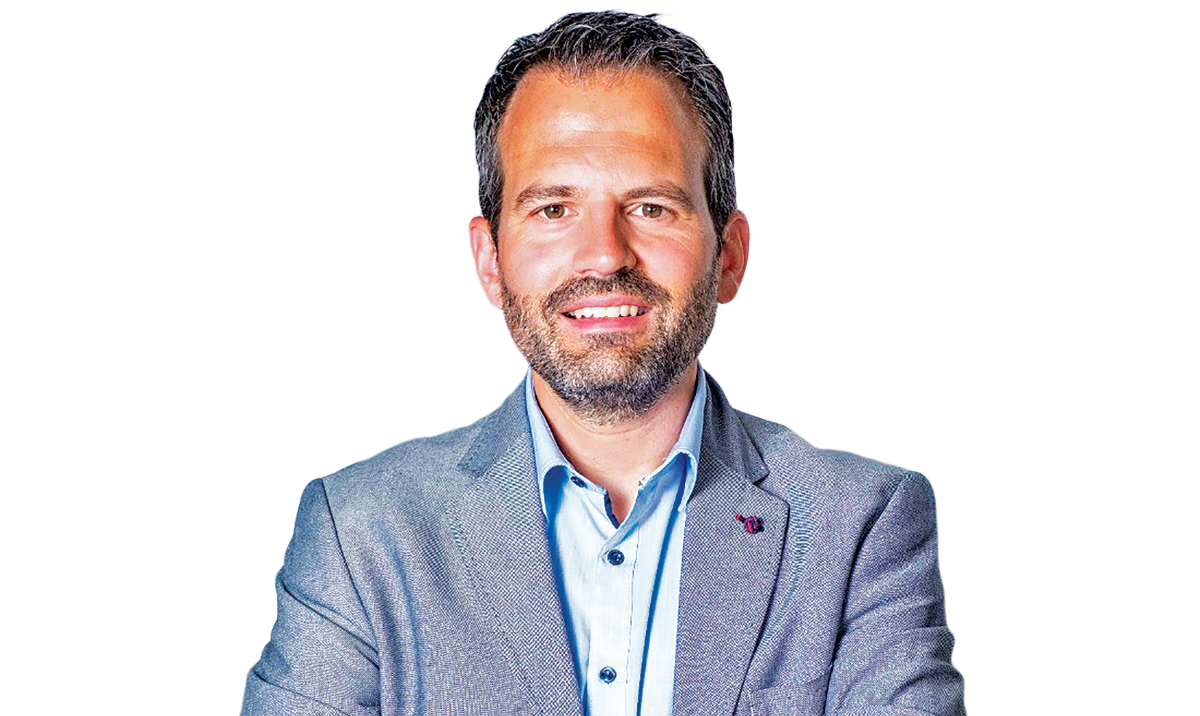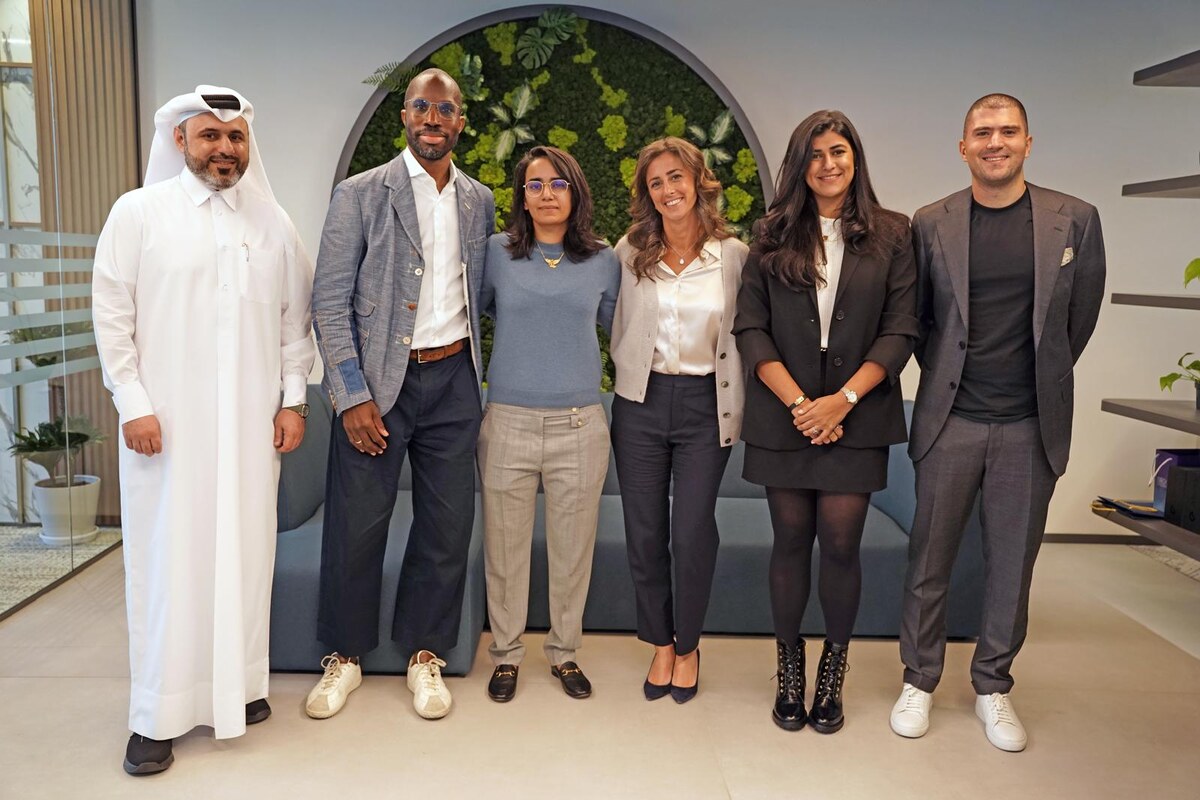RIYADH: Saudi Arabia’s automotive industry is experiencing significant growth, driven by government-led initiatives, a strategic geographical location, and ambitious plans to become a manufacturing hub.
These factors are transforming the Kingdom into a pivotal player in the sector’s global market.
According to Karim Henain, partner at Bain & Co., key drivers of this growth include a young population, increased female drivers, and a substantial influx of expatriates, leading to over 600,000 new car sales annually.
“The market is poised for rapid growth, outpacing many Western counterparts,” Henain told Arab News.
He added: “Vehicle ownership rates in Saudi Arabia exceed those in Western markets, supported by larger family sizes, less developed public transport systems, and a strong culture of personal vehicle dependency.”
According to Aly Hefny, show manager at Automechanika Riyadh, Messe Frankfurt Middle East, Saudi Arabia’s strategic geographical location at the crossroads of major trade routes further enhances its stature as a regional automotive hub. He told Arab News that the Kingdom’s government is taking a unique approach to leading direct investment initiatives within the automotive sector.
“Saudi automotive stakeholders, like their international counterparts, are proactively embracing innovation, investing in research and development, and prioritizing sustainability. These are crucial steps the Saudi government is taking to ensure long-term viability and competitiveness in the global market,” the show manager added.
Manufacturing hub
The automotive sector, encompassing design, development, and production, as well as distribution, maintenance and repair, and customization, plays a crucial role in achieving the ambitious goals of Vision 2030. Henain mentioned that the Kingdom had set an ambitious goal to build an automotive manufacturing cluster, with deals already in place to establish a local footprint for original equipment manufacturers as well as tier-1 suppliers.
“The industry is still nascent and will take some time before it reaches the maturity of other more established automotive manufacturing clusters,” he said.
He pointed out that the Kingdom is investing heavily in autonomous vehicle technology, with plans to introduce Robotaxis and Roboshuttles in the near future.

Saudi automotive stakeholders are proactively embracin innovation, investing in research and development, and prioritizing sustainability.
Aly Hefny, show manager at Automechanika Riyadh
“These initiatives demonstrate the Kingdom’s dedication to adopting and integrating state-of-the-art automotive technologies, positioning it as a global leader in the future of mobility,” the Bain & Co. executive added.
Industry dynamics
The Saudi automotive industry is experiencing notable transformations, according to Matthias Ziegler, managing director of Volkswagen Middle East. Among the key dynamics shaping the sector is the alignment of global SUV preferences with Saudi customers’ preference for larger, family-oriented seven seaters.
“This focus on family transportation is further amplified by the robust infrastructure and extensive road network,” Ziegler told Arab News.
He elaborated that consequently, comfort emerges as a crucial consideration, driving increasing interest in advanced comfort and safety features, as well as in-car connectivity.
“What is unique about the market is the notable brand loyalty among Saudi car buyers, prioritizing after-sales service and vehicle reliability,” Ziegler disclosed.
In the vehicle mix, over 3 percent of the sold vehicles are luxury models, surpassing the global average of 2 percent, according to Henain of Bain & Co.
“SUVs, constitute about 36 percent of the market — slightly below the global average of 45 percent — with a preference for larger models, reflecting the demand for spacious vehicles suited for family use and the diverse terrain.”
Henain highlighted that Asian car manufacturers dominate the market, with Japanese, South Korean, and Chinese brands constituting a remarkable 88 percent of total sales. Notably, Chinese brands have experienced exceptional growth, soaring from 7,000 units in 2018 to 100,000 in 2022.
Sami Malkawi, managing director of sales at Ford Middle East, emphasized Saudi Arabia’s uniqueness as a market, highlighting the significant developments witnessed in the Kingdom’s automotive industry over the past year.
He highlighted that sales of new cars across all original equipment manufacturers in Saudi Arabia surged by 23 percent last year over 2022, a figure that outpaces the global average of 10 percent.
“This is a reflection of the nation’s impressive growth story in a year where its non-oil growth was estimated at nearly 5 percent as it pursued its ambitious Vision 2030 agenda, aided by substantial private and public sector investment,” Malkawi told Arab News.
He stated that Ford is “deeply committed” to Saudi Arabia and has been making concerted efforts to help grow the Kingdom’s automotive sector.
The managing director added: “Our focus — including a strong strategy to develop our product offerings while continuing to further improve customer experience — in conjunction with the Kingdom’s impressive growth, saw us end 2023 with sales up 77 percent over 2022.”
Electric vehicles
Meanwhile, aligning with global trends, Saudi Arabia has implemented ambitious plans for vehicle electrification as part of Vision 2030, aiming to achieve a 30 percent electric vehicle penetration by 2030.
These plans involve local manufacturing of Saudi electric vehicle brands and the establishment of an entity dedicated to developing the country’s charging infrastructure.

This focus on family transportation is further amplified by the robust infrastructure and extensive road network.
Matthias Ziegler, managing director of Volkswagen Middle East
“The KSA EV sector is nascent with less than 1 percent penetration, lagging behind UAE at around 3 percent, China at an estimated 22 percent, and Europe at near 10 percent, attributed to cheap fuel, under-developed charging infrastructure, and lesser appetite among consumers,” Henain revealed.
Ziegler of Volkswagen agreed that the transition to electric vehicles is in its early stages, with a continued preference for combustion engines. However, he emphasized that this does not negate the growing interest in electric vehicle technology.
“Similar to China and the US, the Kingdom implements CO2 regulations, aligning with the international push for sustainability,” Ziegler described.
This aligns with Saudi Arabia’s Vision 2030 strategy for achieving net-zero emissions, which aims to reduce emissions by 278 million tonnes per annum.
On sustainable mobility, Malkawi said: “The growing demand for fuel-efficient and electric vehicles paves the way for a cleaner future, as envisioned by Vision 2030’s focus on sustainability.”
He added that Ford is committed to offering a wider range of Hybrid and EVs in Saudi Arabia and launching vehicles supporting this transition.
Impact on Vision 2030
Industry leaders emphasize that the development of the automotive sector is crucial for achieving Vision 2030’s goals of economic diversification, job creation, and technological advancement.
“By promoting localization, innovation, and sustainable practices, the automotive industry contributes to economic diversification, job creation, and technological advancement,” Hefny commented.
FASTFACT
Asian car manufacturers dominate the market, with Japanese, South Korean, and Chinese brands constituting a remarkable 88 percent of total sales. Notably, Chinese brands have experienced exceptional growth, soaring from 7,000 units in 2018 to 100,000 in 2022.
He also highlighted that initiatives aimed at increasing female participation in the workforce have expanded the consumer base, stimulating demand for vehicles and related services.
Additionally, he emphasized that by aligning with Vision 2030’s objectives, the automotive sector plays an important role in shaping a vibrant and resilient economy for future generations.
Speaking on behalf of Volkswagen Middle East, Ziegler reiterated how a thriving automotive market is central to Saudi Arabia’s economic diversification goals outlined in Vision 2030.
“By promoting localization, job creation, and technology adoption, the industry stimulates economic growth and positions the Kingdom as a leader in future mobility solutions,” he concluded.
The Bain & Co. partner expressed the view that through the development of local manufacturing, the sector enables non-oil gross domestic product growth, stimulates job creation, and fosters technological advancement.
“The push toward electric vehicles and autonomous technologies aligns with Vision’s goals of environmental sustainability and innovation,” Henain added.
He noted that international partnerships in the automotive and mobility industry would enhance Saudi Arabia’s global reputation, driving innovation and bolstering trade ties with leading economies.
“I believe the development of the automotive industry will be pivotal to achieving the country’s development goals set out in Vision 2030,” he concluded.
Malkawi from Ford emphasized that the automotive industry drives diversification, economic growth, and sustainable mobility, infrastructure, and connectivity.
“A thriving automotive sector creates jobs, fosters local businesses, and attracts foreign investment, all aligning with Vision 2030’s economic diversification goals,” he explained.
Malkawi concluded by highlighting the importance of infrastructure and connectivity: “A robust automotive market necessitates improved infrastructure, including better roads and a focus on smart technologies. This aligns with Vision 2030’s goals of developing modern infrastructure and fostering a digitally connected society.”


























